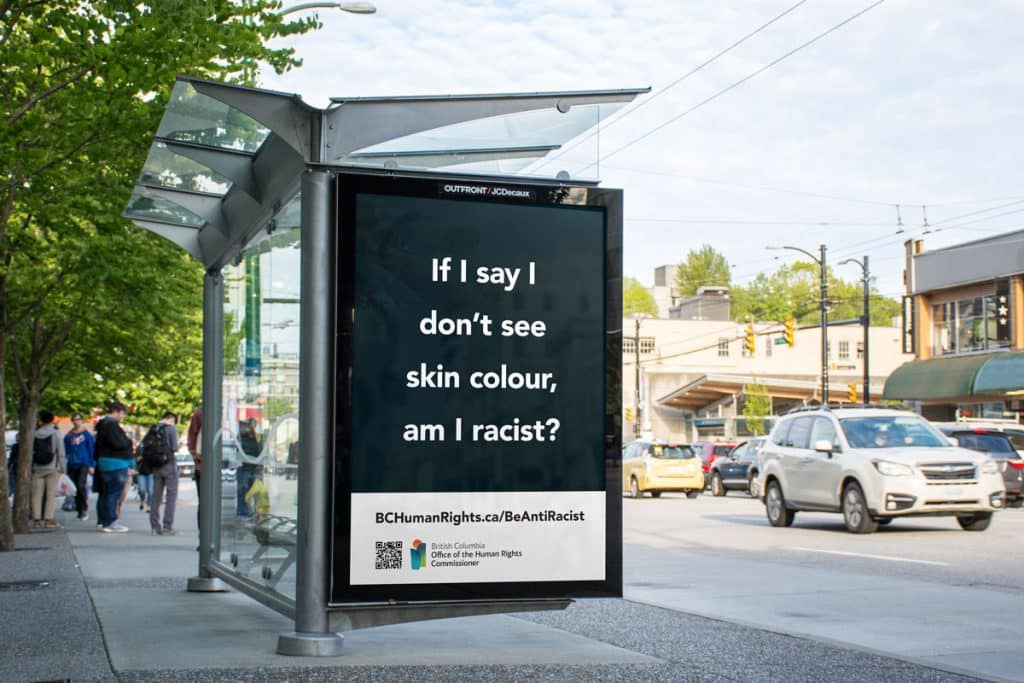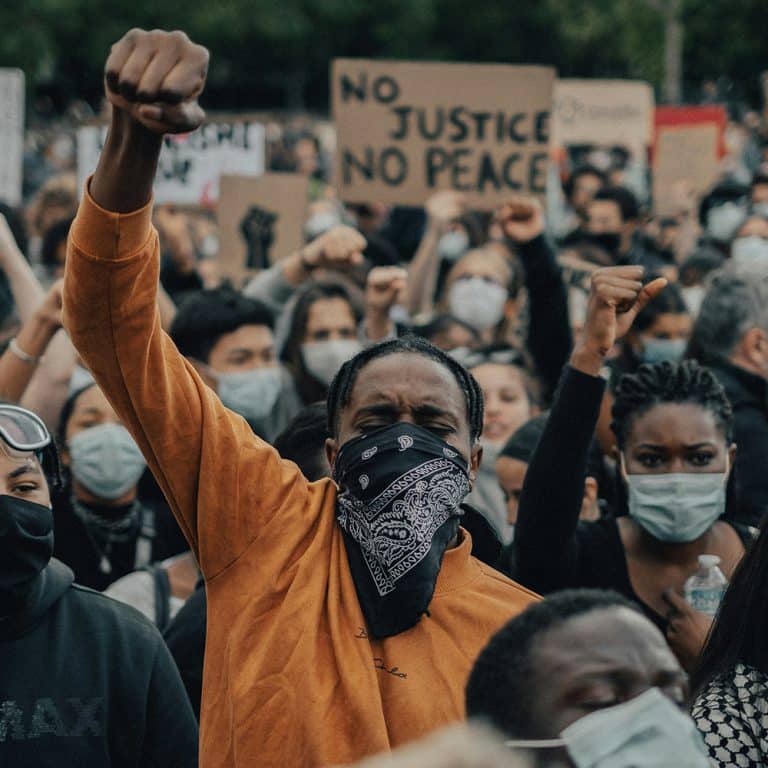If I say I don’t see skin colour am I racist?
Some of the content in this campaign may trigger you. If you need or want support, please call the Crisis Centre at 310-6789.
Are you blind to…
Colour?
On the surface, it may seem perfectly reasonable to say that we don’t see colour. People are usually trying to communicate that they are not judging people by the colour of their skin. But do we really not see skin colour, or are we just telling ourselves that?
It may seem logical that if more Canadians became “colour-blind” our society would become more accepting, and that this would allow people of colour, minority groups, immigrants and Indigenous peoples to feel respected in the place they call home. But this is not yet a reality.
Or reality?
For many people, their skin colour matters very much because they experience racism on a daily basis. To say “I don’t see colour,” is to say we don’t see the racism people face. What matters is people’s own experience of being racialized.
Believing that ignoring skin colour will solve all of our problems fails to consider the very real experiences of racism that occur in daily life. As a result, this attitude helps to maintain inequities and systemic racism. We need to see to believe.
Seeing is believing
When we say we don’t see colour it can actually reinforce racism by hiding it. We need to name the problem before we can solve it.
Statistics show racism is alive and well in Canada — so clearly, we do see race.
See what systemic racism looks like in Canada →
“Seeing colour” means seeing the real experiences of others, understanding why their stories are not heard in society, and working to respect our differences.
Changing how we treat each other is one step towards changing the world, not the journey.
Be colour brave, rather than colour-blind
Hear Mellody Hobson, business person and former chair of DreamWorks Animation, speak about the realities of racism.
How we each see the world —and what we choose not to see — shapes our reality. To be truly anti-racist, we have to think and see differently.
Where are your blind spots?
Who is missing from your world and why? Being colour brave and challenging your blind spots is an anti-racist action you can make today.
-
Who is in your close circle of friends?
What do they look like?
-
Who are your neighbours?
What do they look like?
-
Who do you admire?
What do they look like?
-
Who are your favourite TV characters?
What do they look like?
Before you go…
Tell us what effect this information has had on you.

